Picture Proverbs
Picture Proverbs was a Victorian card game illustrating popular proverbs which were seen as words of wisdom.
Picture Proverbs (c.1890)
J. Simmons & Co., Ltd., 68 Upper Thames Street, London E.C.
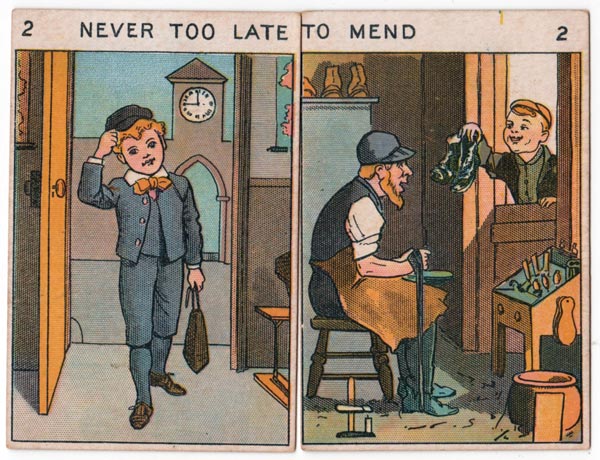
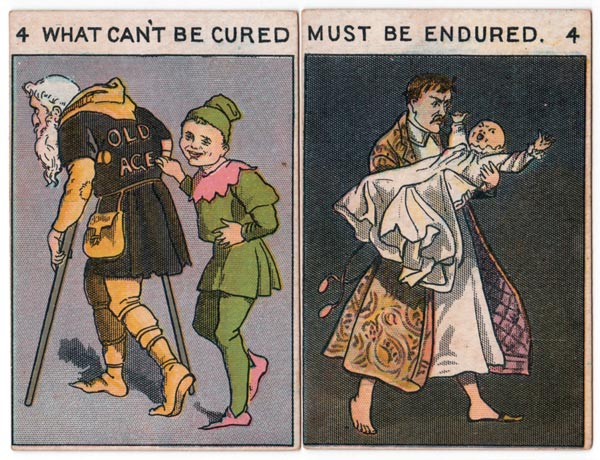
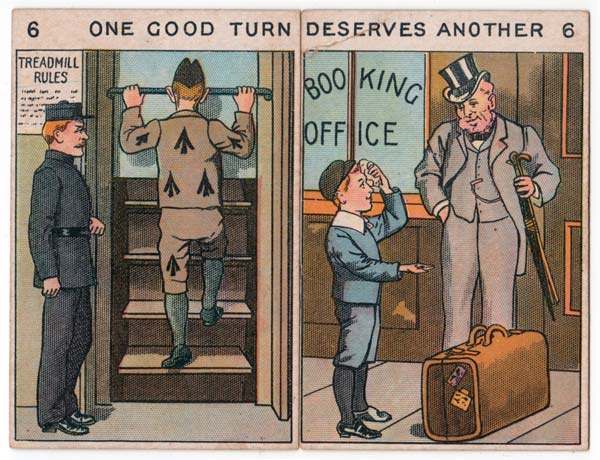
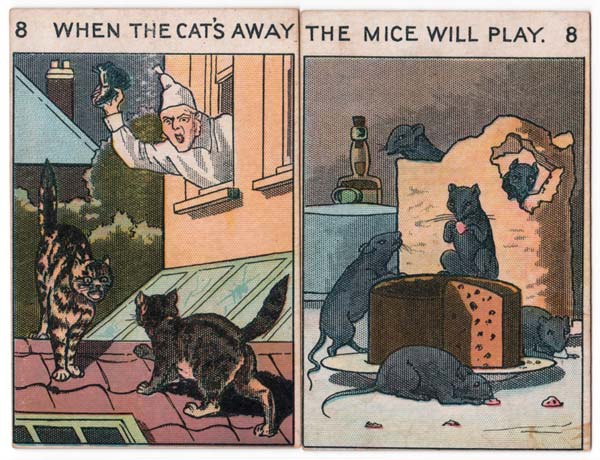
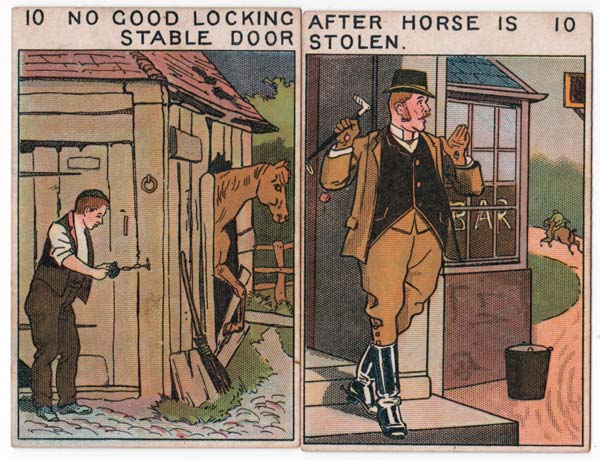
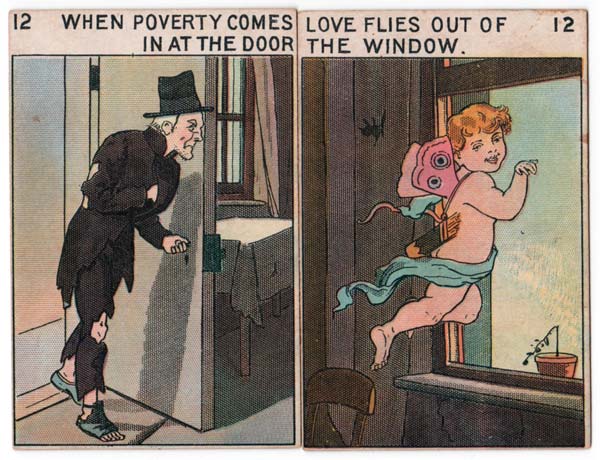
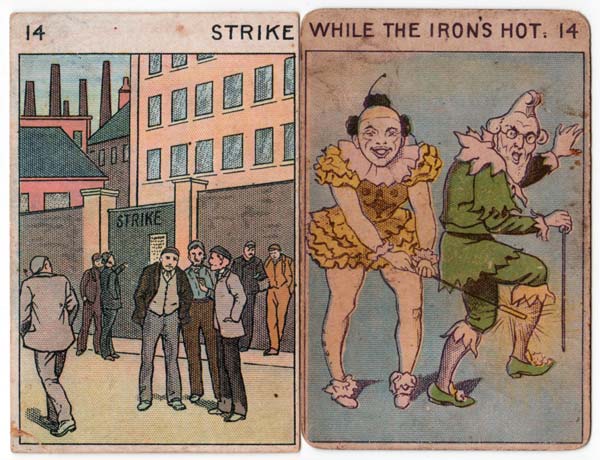
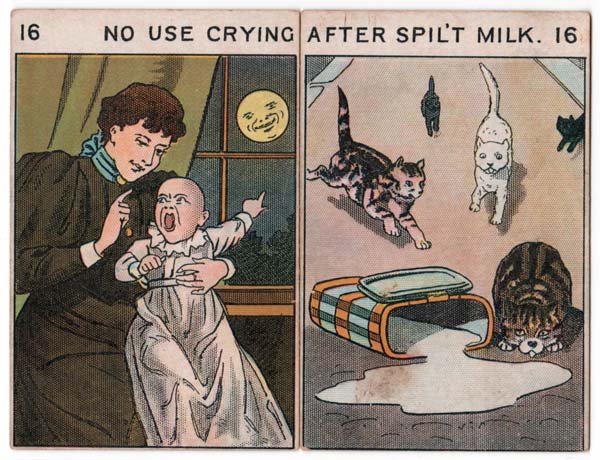
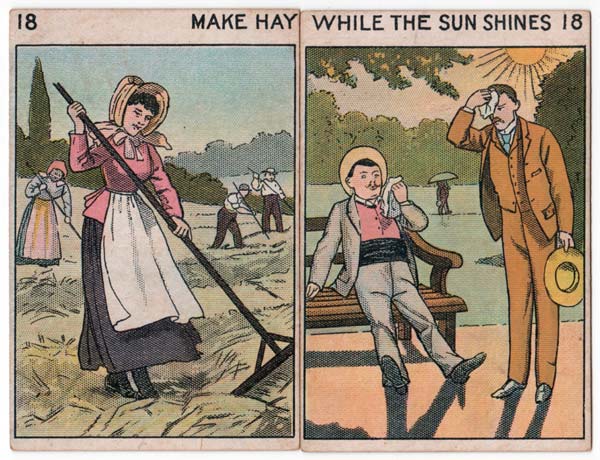
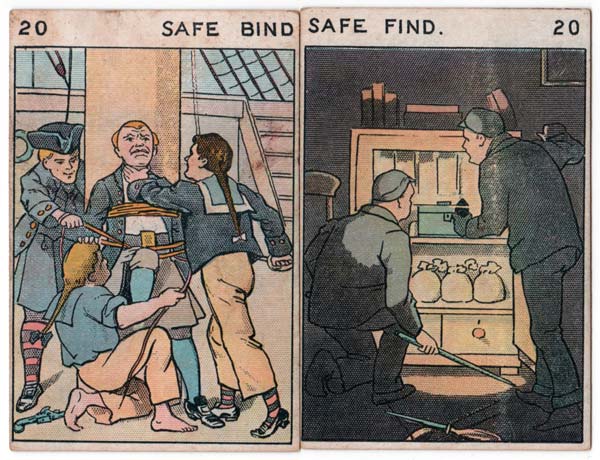
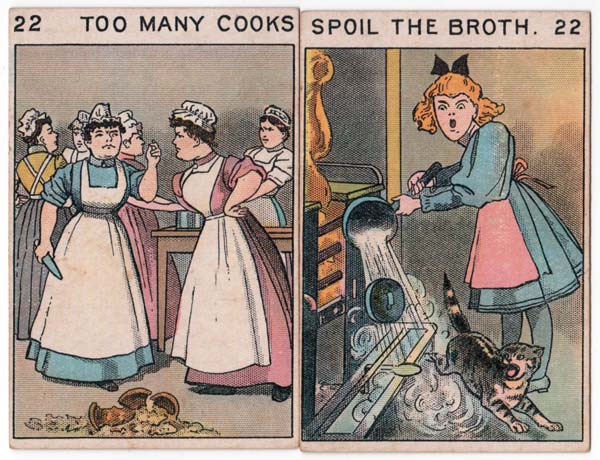
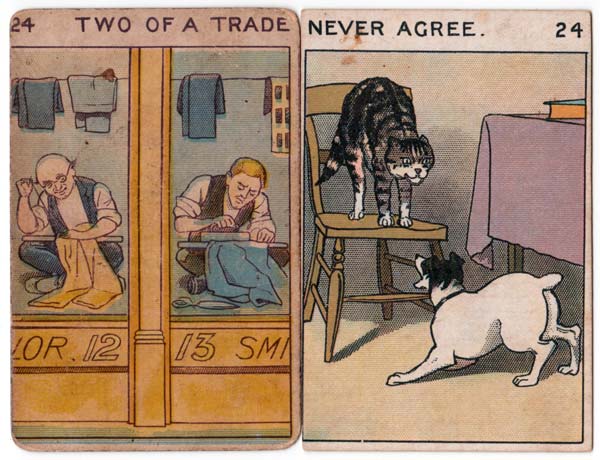
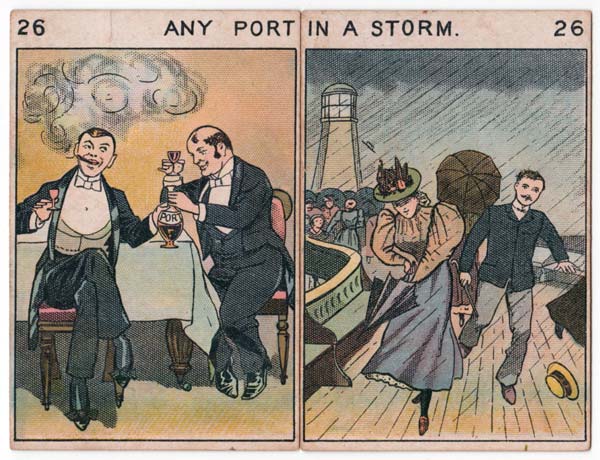
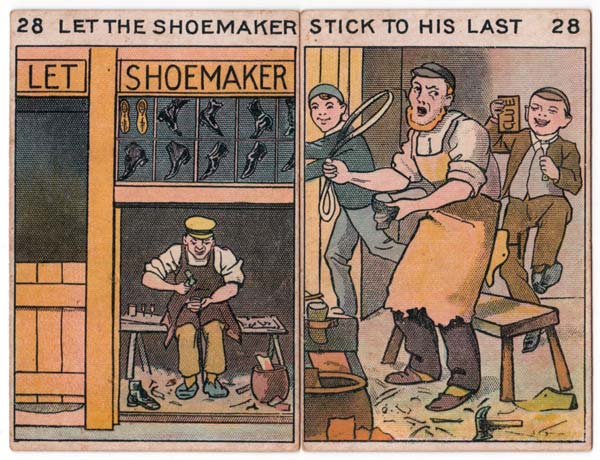
Above: the pack has 56 cards, the backs of the cards are pale yellow. The game is for 5 or more players and consists of 28 pairs of cards illustrating popular Victorian proverbs which were seen as words of wisdom or had a moralising innuendo. Play involves asking other players for a card and laying down completed proverbs; the game is won by the player who has completed the most proverbs. In the event of a player not knowing the words to complete the proverb, he may ask for the number.
Many of these proverbial sayings are still used in many households on a regular basis and others are relics of a time and era which has taken its place in the past. On the box (shown left) the designs are described as "amusing, humorous & artistic". Some of the illustrations show the social inequalities with prosperity for some and poverty and misery for others. It was a time of great inventiveness but also a time of great upheaval. Advice and quotes were always at hand, whether one belonged in the upper or lower classes.
Although the box says designed and made in England the number 9 set shows what is, without doubt, a German smoking his pipe. Is it possible they are telling untruths or could the German artist be living in the UK?
Full list of Proverbs
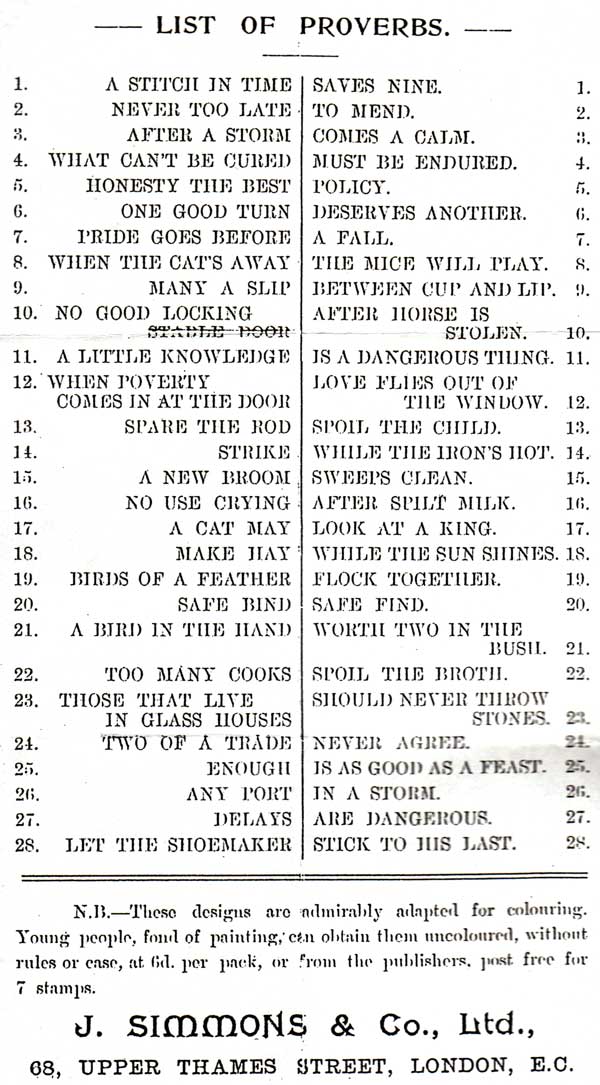
By Rex Pitts (1940-2021)
United Kingdom • Member since January 30, 2009
Rex's main interest was in card games, because, he said, they were cheap and easy to get hold of in his early days of collecting. He is well known for his extensive knowledge of Pepys games and his book is on the bookshelves of many.
His other interest was non-standard playing cards. He also had collections of sheet music, music CDs, models of London buses, London Transport timetables and maps and other objects that intrigued him.
Rex had a chequered career at school. He was expelled twice, on one occasion for smoking! Despite this he trained as a radio engineer and worked for the BBC in the World Service.
Later he moved into sales and worked for a firm that made all kinds of packaging, a job he enjoyed until his retirement. He became an expert on boxes and would always investigate those that held his cards. He could always recognize a box made for Pepys, which were the same as those of Alf Cooke’s Universal Playing Card Company, who printed the card games. This interest changed into an ability to make and mend boxes, which he did with great dexterity. He loved this kind of handicraft work.
His dexterity of hand and eye soon led to his making card games of his own design. He spent hours and hours carefully cutting them out and colouring them by hand.

Leave a Reply
Your Name
Just nowRelated Articles

Proverbs
Proverbs by Norvic Mill, 1920s.
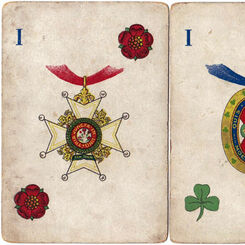
Union Jack
Union Jack card game published by C.W. Faulkner & Co., c.1897-1902.
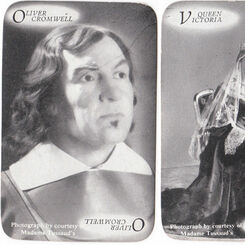
Have A Go
Have A Go card game published by Photo-Briton Ltd featuring photographs of waxwork figures from Mada...
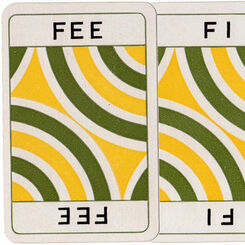
Fee-Fi-Fo-Fum
Fee-Fi-Fo-Fum published by C.W. Faulkner & Co Ltd, c.1925.
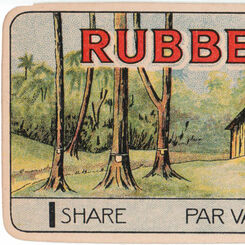
On Spec
“On Spec” is a round game based on selling stocks and shares, published by John Jaques & Son, c.1920...
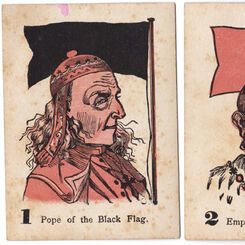
Four Flags
The Game of Four Flags published by Multum in Parvo, 1884
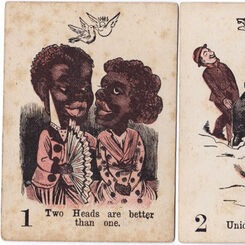
Nap
Nap card games published by Multum in Parvo Ltd, London, c.1900
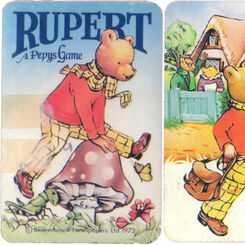
Rupert
Rupert, a Pepys Game, 1973.
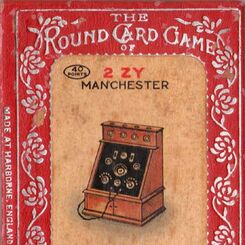
Sparx
‘Sparx’ card game, or ‘Listening In’, published by Chad Valley Games, c.1925.
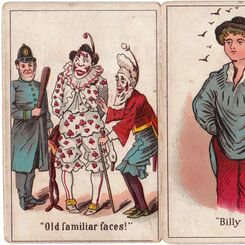
Anonymous Snap game
Anonymous “Snap” game from the late 19th century.
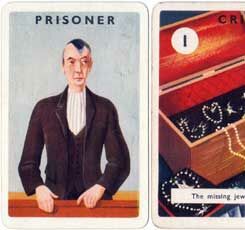
Alibi
“Alibi” the thrilling card game by Haytor, Tor Productions, 1930s.
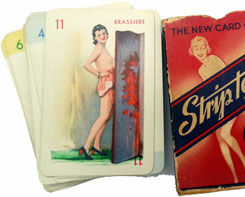
Strip Tease
‘Strip Tease’ card game featuring characters involved in the performance and subsequent prosecution ...
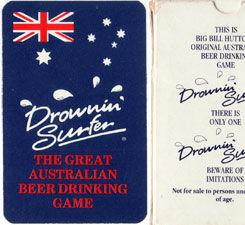
Drownin’ Surfer
Drownin’ Surfer card game
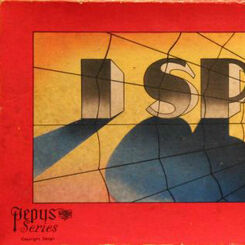
Board Games by Pepys
Pepys board games which may be interesting to see.
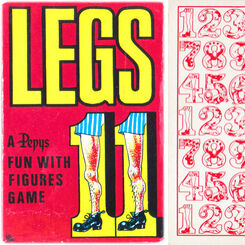
Legs Eleven
Legs Eleven card game by Pepys, 1974.
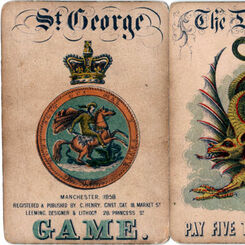
St George Game
St George Game, 1858, depicting St George and other saints engaged in battle slaying the dragon to s...
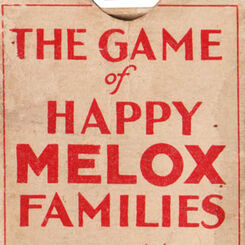
Happy Melox Families
The “Game of Happy Melox Families” was published by G. Clarke & Son of Thomas Street, London, in 192...
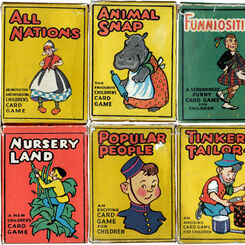
Waddy Productions
Waddy Productions Ltd was a member of the giant Amalgamated Press group and only published card game...
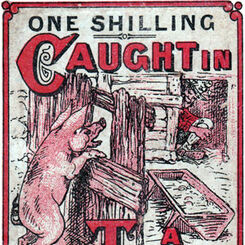
Caught in a Trap
A Victorian card game telling a story of a victim being ensnared in a trap, being caught, and finall...
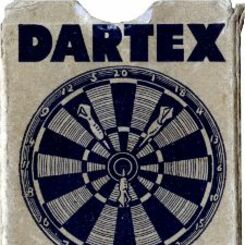
Dartex
Dartex, the Thrilling New Card Game of Skill (1938) based on the traditional pub game where darts ar...
Most Popular
Our top articles from the past 60 days


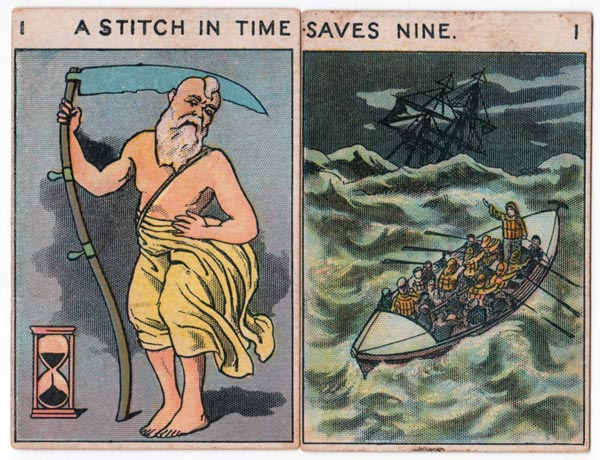
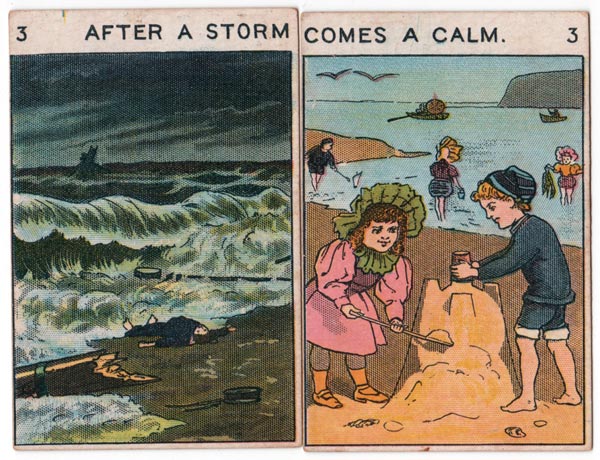
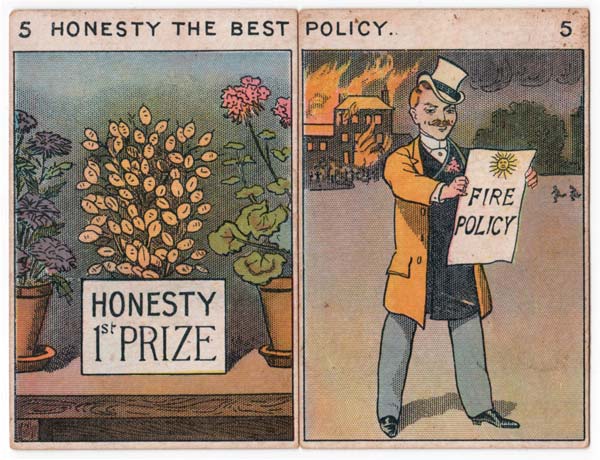
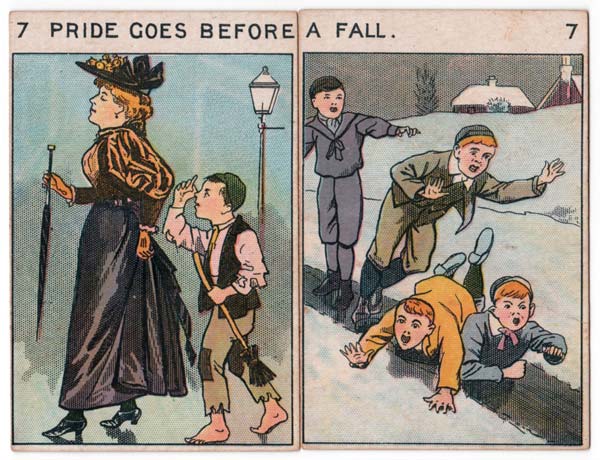
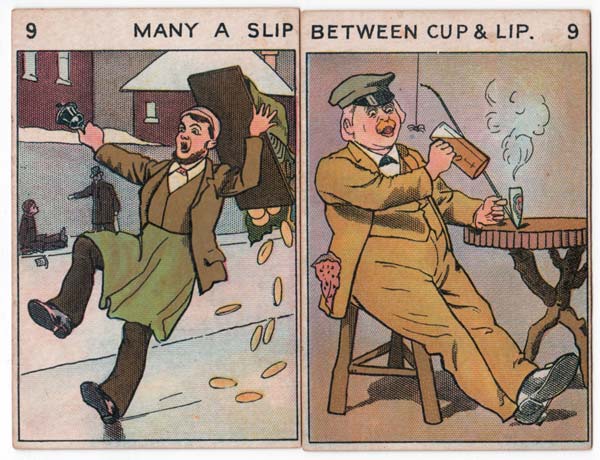
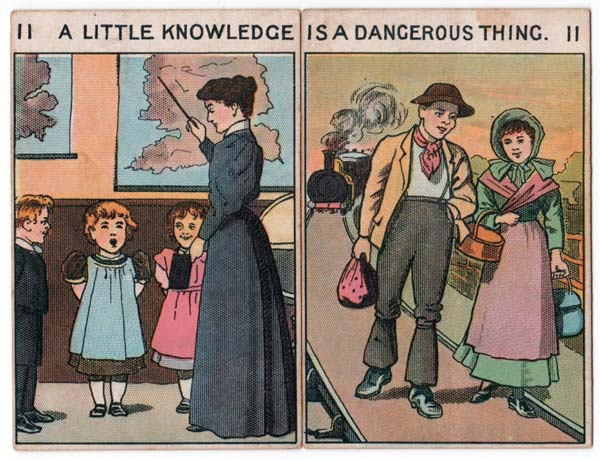
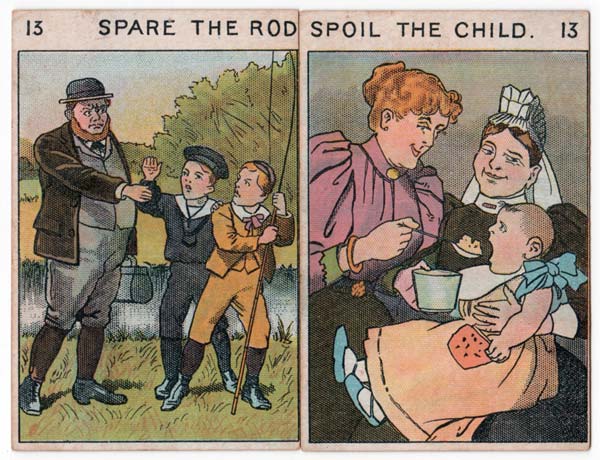
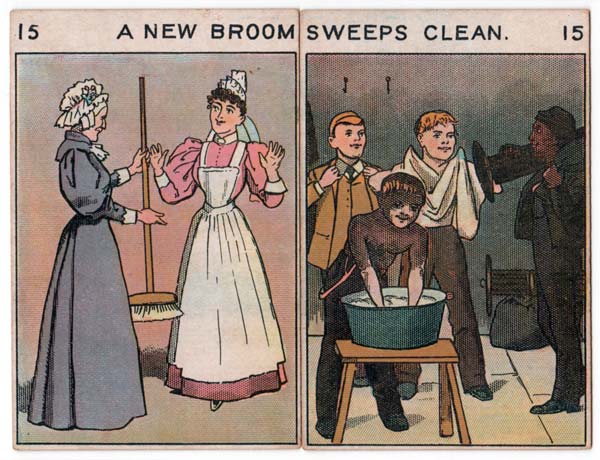
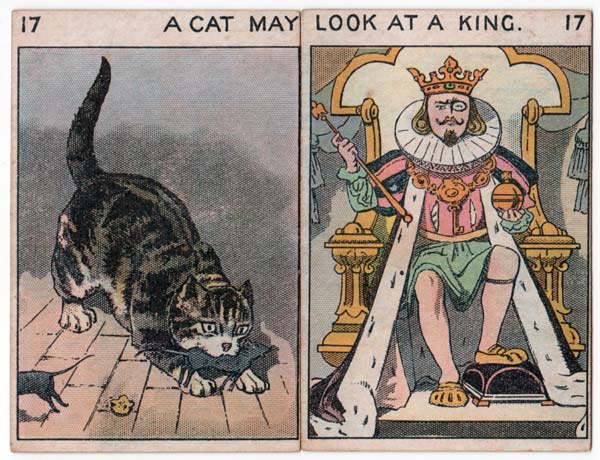
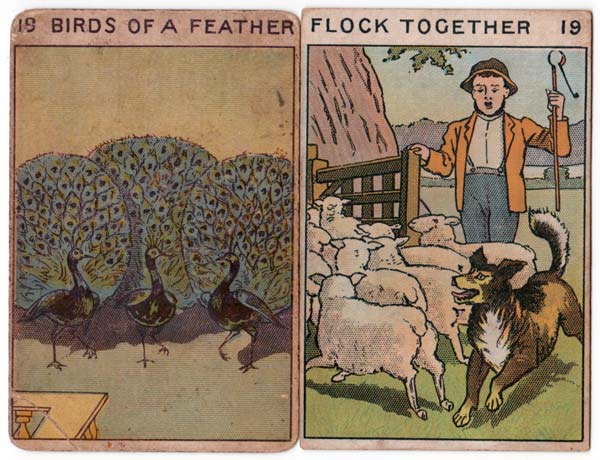
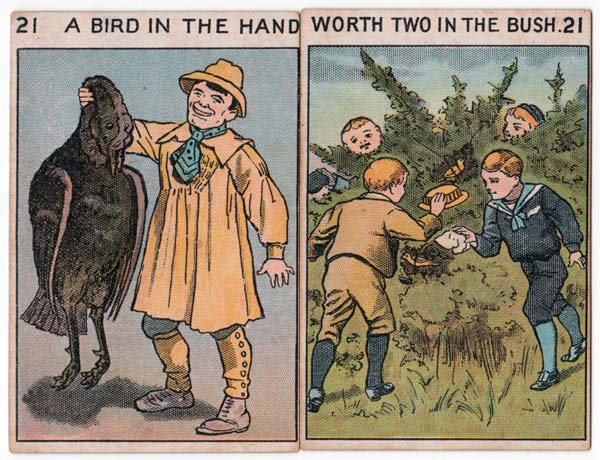
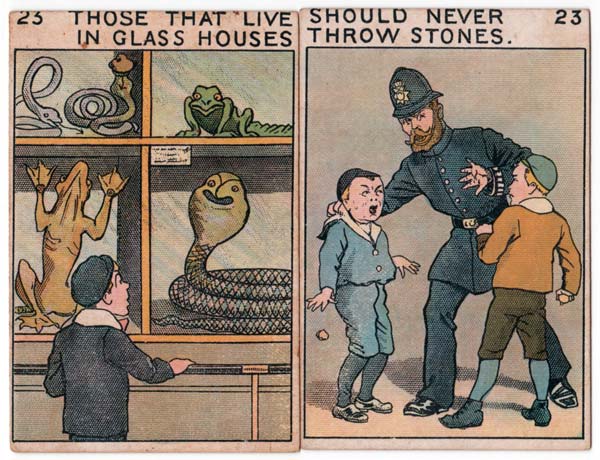
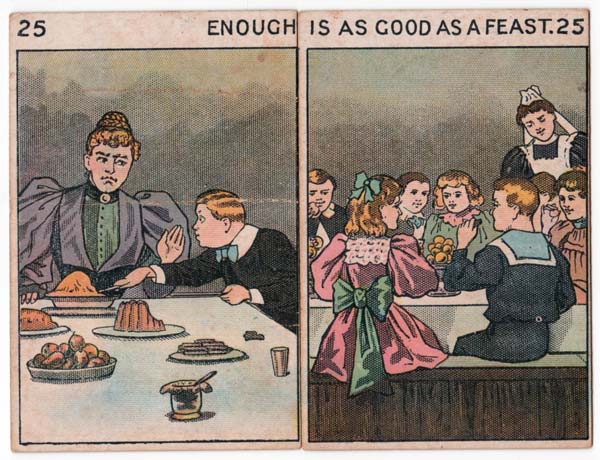
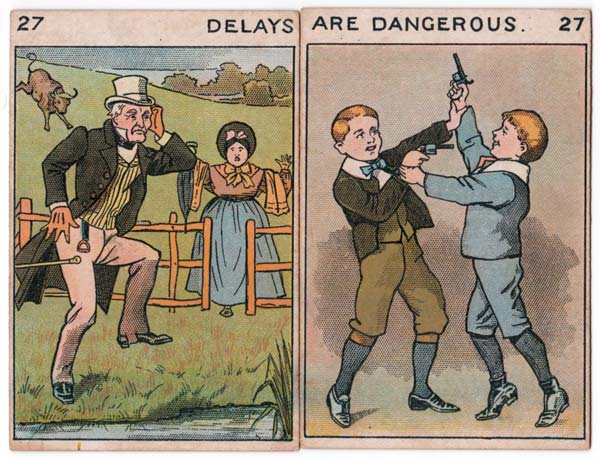
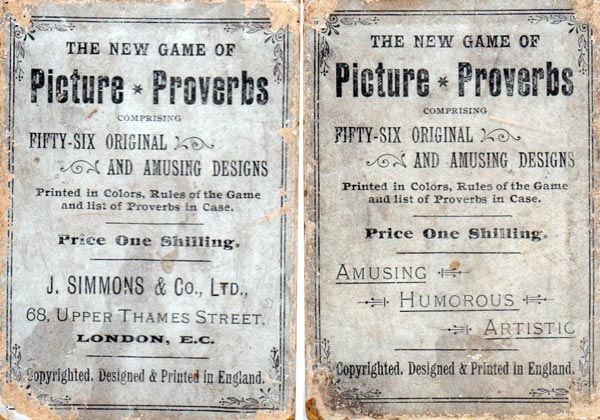
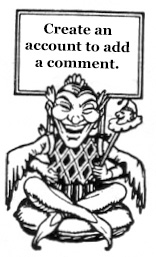 Your comment here. Your comment here. Your comment here. Your comment here. Your comment here. Your comment here. Your comment here. Your comment here. Your comment here. Your comment here. Your comment here. Your comment here. Your comment here. Your comment here. Your comment here. Your comment here. Your comment here. Your comment here. Your comment here. Your comment here. Your comment here. Your comment here. Your comment here. Your comment here. Your comment here. Your comment here. Your comment here. Your comment here. Your comment here. Your comment here. Your comment here. Your comment here.
Your comment here. Your comment here. Your comment here. Your comment here. Your comment here. Your comment here. Your comment here. Your comment here. Your comment here. Your comment here. Your comment here. Your comment here. Your comment here. Your comment here. Your comment here. Your comment here. Your comment here. Your comment here. Your comment here. Your comment here. Your comment here. Your comment here. Your comment here. Your comment here. Your comment here. Your comment here. Your comment here. Your comment here. Your comment here. Your comment here. Your comment here. Your comment here.




















